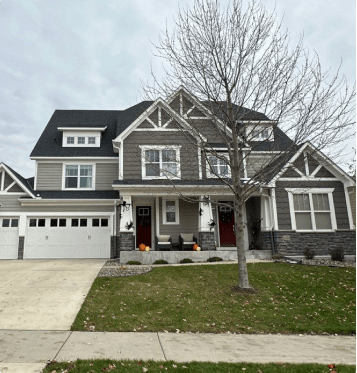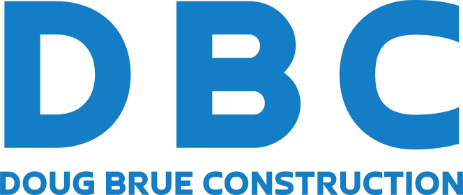When it comes to your business, protecting your commercial building from Mother Nature’s whims is one of the most critical investments you can make. A high-performance, expertly installed commercial roof is vital for safeguarding the functionality and long-term viability of your property. As a savvy business owner, you understand the importance of making the right decisions to suit your company’s unique operational needs. That’s where the seasoned pros at Doug Brue Construction can be your trusted ally and guide.
With over four decades of specialized experience providing top-tier roofing services throughout Hastings and the surrounding areas, our team brings a wealth of hard-earned expertise to the table.
Here are some of the key factors to consider when taking on a residential or commercial roofing project.
1. Evaluating the Current State of Your Roof
The first step is always having a roofing expert take a good, hard look at the condition of your existing roof. A professional inspection by a roofing contractor can determine whether minor repairs may extend its usable life span or if a full roof replacement is required. All components should be examined, including the outer roofing material, seams, flashing, decking, and insulation underneath. Identifying any damage early on can prevent more expensive headaches down the road. A detailed roof analysis gives you the info needed to decide between repairs or replacement.
2. Consider Your Specific Needs
The building’s shape and roofline factor into material choice and installation. Specialized equipment like HVAC units on commercial roofs have to be accounted for as well. A roofing contractor will take your specific needs into account when specifying the right roofing system.
3. Local Climate and Surroundings
The climate you’re in plays a huge role in determining suitable roofing materials and systems. A building in our cold northern area needs to be able to tough it out against heavy snow, ice dams, and freezing temperatures. Even nearby trees can be an issue, leaching oils onto the roof or clogging up gutters with debris. Proximity to highways or industrial areas impacts wear from pollution, too. Evaluating the conditions and hazards around your building will clue you in on the best roofing choice.
4. Explore Your Material Options
Many material options exist beyond traditional asphalt shingles. Metal, TPO, PVC, EPDM, modified bitumen, and built-up roofing systems are just some of the possibilities. Each one has its own pros and cons related to durability, longevity, sustainability, cost, installation methods, and warranties. A roofing contractor can break down the nitty-gritty of each material to simplify the selection process. We can provide recommendations tailored to your commercial property’s unique needs.
5. Don’t Neglect Proper Drainage and Slope
Besides material choice, proper drainage and slope are critical factors influencing roof performance and longevity. Insufficient slope causes ponding water that can lead to leaks, interior damage, and premature roof failure. As part of a re-roofing project, a contractor will evaluate the existing drainage system and building structure to ensure any problem areas get addressed. Installing the right slope and drainage components will extend the usable life of the roof.
6. Factor in Your Future Plans
If you’ve got any expansion, renovation, or other major plans in the pipeline for your commercial property, make sure to loop those in as you’re evaluating roofing needs. Upcoming building changes could impact things like the necessary life span or removal process for a new roof. If big renovations are just over the horizon, a less intensive stopgap solution might be enough for now. A roofing contractor can recommend options tailored to your future plans, so you don’t overspend prematurely.
7. Determine a Budget You’re Comfortable With
The upfront cost is often top of mind when planning a new roof. And while premium materials like metal roofing require a bigger upfront investment, they can pay dividends in the long run with an extended life span and lower maintenance needs. On the flip side, more budget-friendly choices like TPO membrane still deliver quality performance at a lower price point. A contractor can suggest solutions that align with both your financial capabilities and long-term goals.
8. Consider Environmentally Friendly Options
Compared to older options, many modern roofing materials and systems bring sustainability benefits to the table. TPO, PVC, coated membranes, and certain metals tend to be more recyclable and energy efficient. Even metal roofs can be outfitted with cool coatings to reduce solar heat gain. If environmental impact is a priority for you, a roofing company well-versed in green materials can suggest materials aligned with your sustainability objectives.
9. Hire an Experienced Commercial Roofing Specialist
Don’t take chances by leaving your commercial roofing project to just any contractor. To ensure a smooth, code-compliant process from start to finish, you need an experienced commercial roofing specialist in your corner. From the initial inspection and planning phases through top-notch installation, a knowledgeable contractor will oversee every step. They’ll also handle any necessary permits and provide manufacturer warranties for added peace of mind.
Schedule an Appointment
Planning a commercial roofing project doesn’t have to be a total headache. Doug Brue Construction has the expertise to guide you smoothly through the process from start to finish. Our roofing services include repairs, replacement, maintenance, gutters, storm damage restoration, and more. We take the time to really understand your business’s needs, budget, and goals. Contact Doug Brue Construction today for all your roofing needs!







